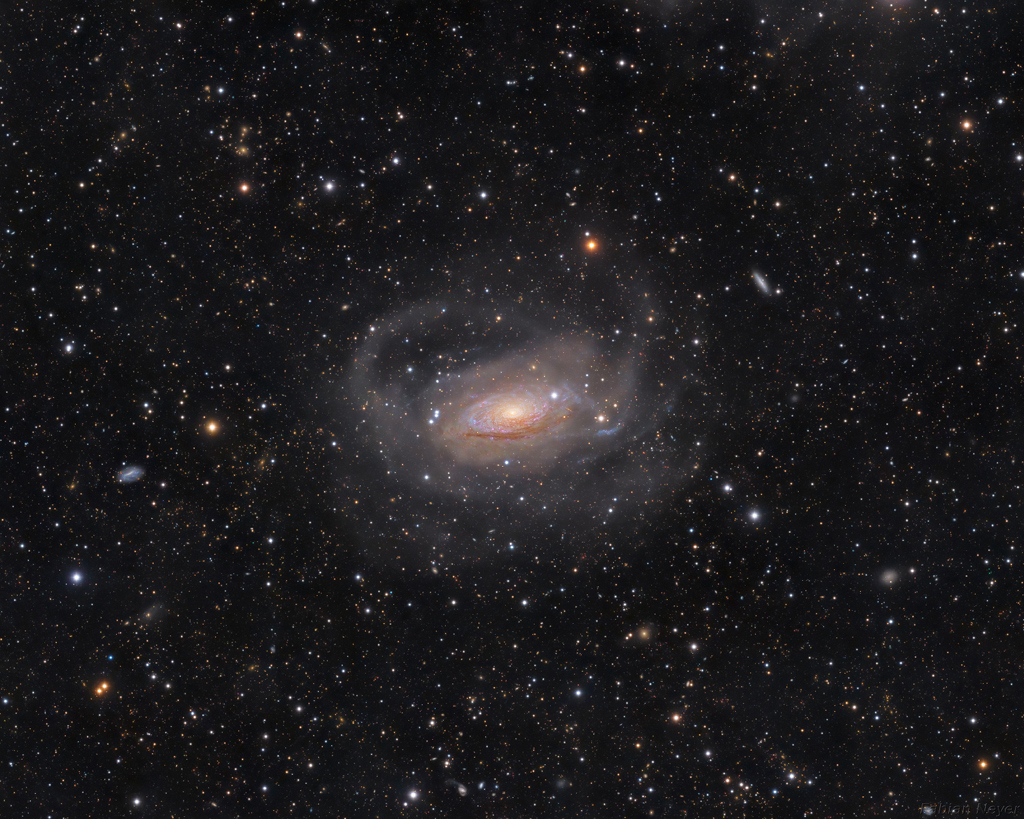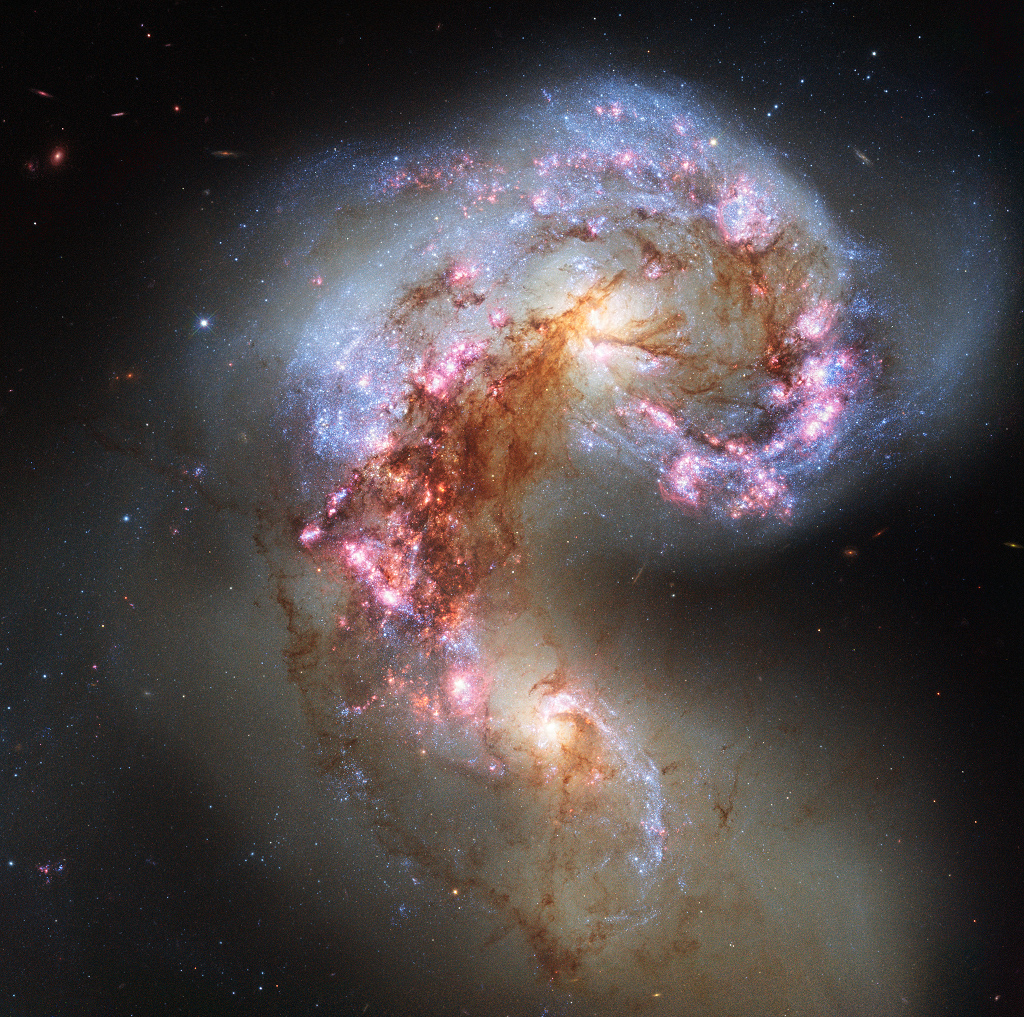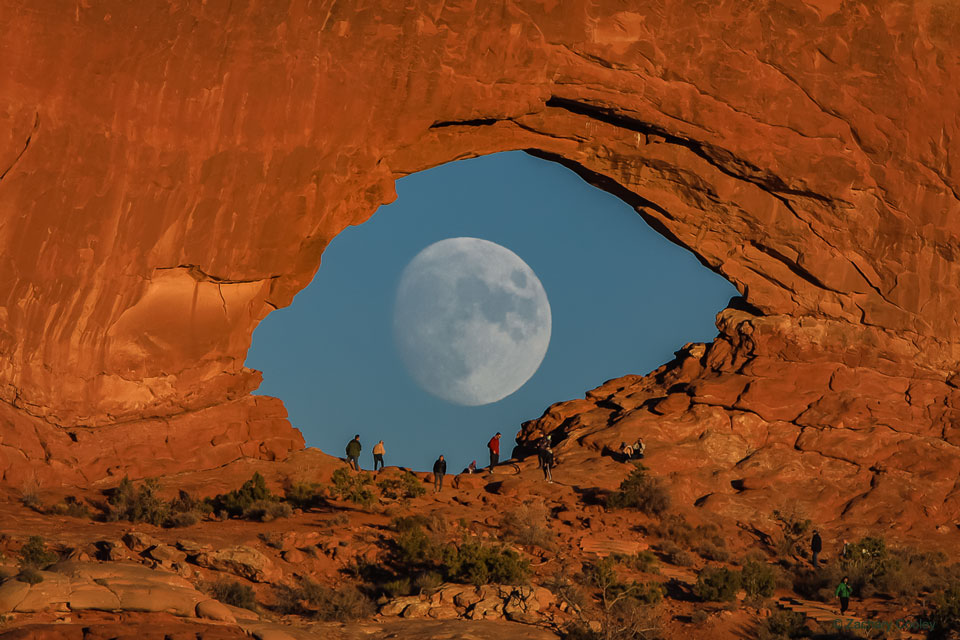Blog
A bright spiral galaxy of the northern sky, Messier 63 is nearby, about 30 million light-years distant toward the loyal constellation Canes Venatici. Also cataloged as NGC 5055, the majestic island universe is nearly 100,000 light-years across, about the size of our own Milky Way. Its bright core and majestic spiral arms lend the galaxy its popular name, The Sunflower Galaxy, while this exceptionally deep exposure also follows faint, arcing star streams far into the galaxy’s halo. Extending nearly 180,000 light-years from the galactic center the star streams are likely remnants of tidally disrupted satellites of M63. Other satellite galaxies of M63 can be spotted in this remarkable wide-field image, made with a small telescope, including five newly identified faint dwarf galaxies, which could contribute to M63’s star streams in the next few billion years.

Cassandra Wilson (born December 4, 1955) is an American jazz singer, songwriter, and producer from Jackson, Mississippi. She has been described by critic Gary Giddins as “a singer blessed with an unmistakable timbre and attack [who has] expanded the playing field” by incorporating blues, country, and folk music into her work.
Cassandra Wilson is the third and youngest child of Herman Fowlkes, Jr., a guitarist, bassist, and music teacher; and Mary McDaniel, an elementary school teacher who earned her PhD in education. Her ancestry includes Fon, Yoruba, Irish and Welsh. Between her mother’s love for Motown and her father’s dedication to jazz, Wilson’s parents sparked her early interest in music.
Wilson’s earliest formal musical education consisted of classical lessons; she studied piano from the age of six to thirteen and played clarinet in the middle school concert and marching bands. When she was tired of this training, she asked her father to teach her the guitar. Instead, he gave her a lesson in self-reliance, suggesting she study Mel Bay method books. Wilson explored guitar on her own, developing what she has described as an “intuitive” approach. During this time she began writing her own songs, adopting a folk style. She also appeared in the musical theater productions, including The Wizard of Oz as Dorothy, crossing racial lines in a recently desegregated school system.
Wilson attended Millsaps College and Jackson State University. She graduated with a degree in mass communications. Outside of the classroom, she spent her nights working with R&B, funk, and pop cover bands, also singing in local coffeehouses. The Black Arts Music Society, founded by John Reese and Alvin Fielder, provided her with her first opportunities to perform bebop. In 2007, Wilson received her PhD in Arts from Millsaps College.
In 1981, she moved to New Orleans for a position as assistant public affairs director for the local television station, WDSU. She did not stay long. Working with mentors who included elder statesmen Earl Turbinton, Alvin Batiste, and Ellis Marsalis, Wilson found encouragement to seriously pursue jazz performance and moved to New York City the following year.
more...Terence Woods (born 4 December 1947 in Dublin, Ireland) is an Irish folk musician, noted for playing the mandolin and cittern, but also plays acoustic and electric guitar, mandola, five-string banjo and concertina. He is also a singer and songwriter. He is known for his membership in such folk and folk-rock groups as The Pogues, Steeleye Span, Sweeney’s Men, The Bucks and, briefly, Dr. Strangely Strange and Dublin rock band Orphanage, with Phil Lynott, as well as in a duo/band with his then wife, Gay, billed initially as The Woods Band and later as Gay and Terry Woods. Woods has toured with The Pogues on their reunion concerts.
more...James Stanley Hall (December 4, 1930 – December 10, 2013) was an American jazz guitarist, composer and arranger.
Born in Buffalo, New York, Hall moved with his family to Cleveland, Ohio during his childhood. Hall’s mother played the piano, his grandfather violin, and his uncle guitar. He began playing the guitar at the age of 10, when his mother gave him an instrument as a Christmas present. At 13 he heard Charlie Christian play on a Benny Goodman record, which he calls his “spiritual awakening”. As a teenager in Cleveland, he performed professionally, and also took up the double bass. Hall’s major influences since childhood were tenor saxophonists Coleman Hawkins, Lester Young, Paul Gonsalves, and Lucky Thompson. While he copied out solos by Charlie Christian, and later Barney Kessel, it was horn players from whom he took the lead. In 1955, Hall attended the Cleveland Institute of Music, where he majored in composition, studying piano and bass in addition to theory.
more...Edward Heywood Jr. (December 4, 1915 – January 3, 1989) was an American jazz pianist, popular in the 1940s and 1950s. Heywood was born in Atlanta, Georgia. His father, Eddie Heywood Sr., was also a jazz musician from the 1920s and provided him with training from the age of 12 as an accompanist playing in the pit band in a vaudeville theater in Atlanta, occasionally accompanying singers such as Bessie Smith and Ethel Waters. Heywood moved, first to New Orleans and then to Kansas City, when vaudeville began to be replaced by sound pictures.Heywood played with several popular jazz musicians such as Wayman Carver in 1932, Clarence Love from 1934 to 1937 and Benny Carter, who heard him in Kansas City playing with Clarence Love, from 1939 to 1940 after moving to New York City in 1938.
After starting his band, Heywood would occasionally do back-up for Billie Holiday in 1941. In 1943, Heywood took several classic solos on a Coleman Hawkins quartet date (including “The Man I Love“) and put together a sextet, including Doc Cheatham (tpt), Vic Dickenson (tb), Lem Davis (as), Al Lucas (b), and Jack Parker (d). After their version of “Begin the Beguine” became a hit in 1944, they had three successful years.“Begin the Beguine” sold over one million copies, and was awarded a gold disc by the RIAA.
https://www.youtube.com/watch?v=DSdmknZM9LY
more...Seguiriya
“Seguiriya” is one of the oldest flamenco styles. It is one of the most important with the “bulería” and “soleá”.
Etymologically, its name is supposed to derive from the “seguidilla”. A phonetic corruption has deformed it in different terms: “seguiriya”, “siguiriya”, “seguirilla” or “siguerilla”. The oldest evidence of this flamenco style is found in the late 18th century, even though its origin is still uncertain. “Seguiriya” derived from primitive “tonás”, being created between Seville and Cadiz, los Puertos, Jerez and Triana neighborhood.
“Livianas” and “serranas” belong to the same group as this style. Both styles follow “segiriya” rhythm. Another variety is the “cabales”, which are very similar to “seguiriyas” but in a higher tone.
As singing, it has a tragic and gloomy character, enclosing main values of what is known as “cante hondo”. Lyrics are painful, tragic, about human relationships, love and death.
“Seguiriya” has few lyrics and many “quejíos”. Musical aesthetic of “seguiriya” is taken from styles such “malagueñas” or a capella (without guitar). The term “Seguiriya” appears in many literary works. Furthermore, music in some “tonadillas”appear as “seguidilla gitana”, which doesn’t match with “seguidilla flamenca”.
It is known today that its metric is based on an order inversion of the “soleá” rhythm (3 × 4 + 6 × 8). Oldest forms of this style were interpreted in the same way as “tonás”, without music accompaniment. Currently, it is accompanied by guitar. In addition, continuous tone changes and nuances make this singing as one of the most difficult to perform. Dance was introduced for the first time thanks to Vicente Escudero in 1940.
Sixty million light-years away toward the southerly constellation Corvus, these two large galaxies are colliding. The cosmic train wreck captured in stunning detail in this Hubble Space Telescope snapshottakes hundreds of millions of years to play out. Cataloged as NGC 4038 and NGC 4039, the galaxies’ individual stars don’t often collide though. Their large clouds of molecular gas and dust do, triggering furious episodes of star formation near the center of the wreckage. New star clusters and interstellar matter are jumbled and flung far from the scene of the accident by gravitational forces. This Hubble close-up frame is about 50,000 light-years across at the estimated distance of the colliding galaxies. In wider-field views their suggestive visual appearance, with extended structures arcing for hundreds of thousands of light-years, gives the galaxy pair its popular name, The Antennae Galaxies.

Joseph William “Joe” Thomas, also known as Brother Cornbread (December 3, 1902 – February 18, 1981) was an American jazz clarinetist and singer, closely associated with the New Orleans jazz scene.
Thomas’s first professional gig was in New Orleans with trombone player Joe Harris in 1923. Soon after that, he worked with Jack Carey, Chris Kelly, and Kid Rena. He recorded with Charles Derbigny in 1941, but the recordings were not publicly released until the 1960s, by which time Thomas had become a figure in the Dixieland revival movement. He led his own ensemble at New Orleans’s H&J Tavern for much of the 1940s, then, in 1951, became a sideman for Papa Celestin. He worked with this ensemble for years, including after Papa French and Eddie Pierson had taken over as leader. Other associations in the 1950s and 1960s included work with Freddie Kohlman, Punch Miller, the Olympia Brass Band, and on Swedish television with Sweet Emma Barrettin 1968. In the 1970s he worked with the Legends of Jazz, replacing Joe Darensbourg.
more...Antonio Francisco Javier José Soler Ramos, usually known as Padre (‘Father’, in the religious sense) Antonio Soler, known in Catalan as Antoni Soler i Ramos (baptized 3 December 1729 – died 20 December 1783) was a Spanish composer whose works span the late Baroqueand early Classical music eras. He is best known for his many mostly one-movement keyboard sonatas strongly influenced by Domenico Scarlatti, which constitute a very important, quite underrated, contribution to the harpsichord, fortepiano and organ repertoire.
more...Kanaka Dasa (1509 – 1609) was a Haridasa, a renowned composer of Carnatic music, poet, philosopher and musician.[2] He is known[3] for his keertanas and ugabhoga, compositions in the Kannada language for Carnatic music. Like other Haridasas, he used simple Kannada language and native metrical forms for his compositions.
Originally named Thimmappa Nayaka, Kaginele in Haveri district. He was born in Baada village, near Bankapura and he was a warrior at Bankapura fort. Based on one of his compositions, it is interpreted that he was seriously injured in a battle and was miraculously saved. After this incident, he gave up his profession as a warrior and devoted himself to composing music, writing literature and explaining philosophy to the common man. His early work includes poems titled Narasimha stotra, Ramadhyana Mantra, and Mohanatarangini.
https://www.youtube.com/watch?v=ufzGnD7eJ1o&t=58s
more...The featured image of the Moon through a gap in a wall of rock may appear like a giant eye looking back at you. Although, in late October, it took only a single exposure to capture this visual double, it also took a lot of planning. The photographic goal was achieved by precise timing — needed for a nearly full moon to appear through the eye-shaped arch, by precise locating — needed for the angular sizeof the Moon to fit iconically inside the rock arch, and by good luck — needed for a clear sky and for the entire scheme to work. The seemingly coincidental juxtaposition was actually engineered with the help of three smartphone apps. The pictured sandstone arch, carved by erosion, is millions of years old and just one of thousands of natural rock arches that have been found in Arches National Park near Moab, Utah, USA. Contrastingly, the pictured Moon can be found up in the sky from just about anywhere on Earth, about half the time.

Tal Wilkenfeld (born 2 December 1986) is an Australian singer, songwriter, bassist and guitarist whose career began performing alongside artists including Jeff Beck, Prince, Eric Clapton, Herbie Hancock and Mick Jagger. In 2008, Wilkenfeld was voted “The Year’s Most Exciting New Player” by Bass Player magazine readers’ choice poll. In 2013, Wilkenfeld was awarded Bass Player Magazine’s “Young Gun Award” by Don Was, where she performed “Chelsea Hotel” by Leonard Cohen.
Wilkenfeld is a bandleader of her own eponymous bands in which she sings, plays bass and guitar. In her earlier work, she was backed by musicians such as Wayne Krantz and Vinnie Colaiuta. She opened for The Who on the North American part of The Who Hits 50! tour in 2016. In 2016, Wilkenfeld released a single entitled “Corner Painter” which features Blake Mills and Benmont Tench. Rolling Stone praised “Wilkenfeld is working on new music that sees her evolving from an instrumental prodigy into a formidable singer-songwriter” On 15 March 2019, Wilkenfeld released her vocal debut album Love Remains, which reached No. 1 on the Billboard Heatseeker charts on the first week of its release. Love Remains has been highly praised by the press and featured in Rolling Stone, Relix, Paste, Billboard and Forbes. Rolling Stone described Wilkenfeld’s vocal debut as “ten dense, riff-heavy tracks with brazen, introspective lyrics—prove her songwriting abilities.” Wilkenfeld has also been a guest on popular podcasts including Marc Maron and Bill Burr. Wilkenfeld was featured on the cover of Bass Player magazine’s March 2019 issue. On 22 July 2019, Wilkenfeld appeared on Jimmy Kimmel Live, performing “Killing Me” and “Corner Painter”.
https://www.youtube.com/watch?v=Kn2Yvjd5kqY
more...Ronald Mathews (December 2, 1935 in New York City – June 28, 2008 in Brooklyn) was an American jazz pianist who worked with Max Roach from 1963 to 1968 and Art Blakey‘s Jazz Messengers. He acted as lead in recording from 1963 and 1978–79. His most recent work was in 2008, as both a mentor and musician with Generations, a group of jazz musicians headed by veteran drummer Jimmy Cobb. He contributed two new compositions for the album that was released by San Francisco State University’s International Center for the Arts on September 15, 2008.
Critics have compared him to pianists Thelonious Monk, Bud Powell, and McCoy Tyner.
In his twenties, Mathews toured internationally and recorded with Roach, Freddie Hubbard and Roy Haynes. He was also a member of Art Blakey’s Jazz Messengers in the late 1950s through the 1960s. By thirty, he began teaching jazz piano and led workshops, clinics and master classes at Long Island University in New York City. Besides Dexter Gordon and Clark Terry, he toured and recorded on two Louis Hayes projects in the 70’s (i.e. the Louis Hayes-Woody Shaw Quintet and the Louis Hayes-Junior Cook Quintet).
more...Wynton Charles Kelly (December 2, 1931 – April 12, 1971) was an American jazz pianist and composer. He is known for his lively, blues-based playing and as one of the finest accompanists in jazz. He began playing professionally at the age of 12 and was pianist on a No. 1 R&B hit at the age of 16. His recording debut as a leader occurred three years later, around the time he started to become better known as an accompanist to singer Dinah Washington, and as a member of trumpeter Dizzy Gillespie‘s band. This progress was interrupted by two years in the United States Army, after which Kelly returned to Washington and Gillespie, and played with other leaders. Over the next few years, these included instrumentalists Cannonball Adderley, John Coltrane, Hank Mobley, Wes Montgomery, and Sonny Rollins, and vocalists Betty Carter, Billie Holiday, and Abbey Lincoln.
Kelly attracted the most attention as part of Miles Davis‘ band from 1959, including an appearance on the trumpeter’s Kind of Blue, often mentioned as the best-selling jazz album ever. After leaving Davis in 1963, Kelly played with his own trio, which recorded for several labels and toured the United States and internationally. His career did not develop much further, and he had difficulty finding enough work late in his career. Kelly, who was known to have epilepsy, died in a hotel room in Canada following a seizure, aged 39.
more...Charlie Ventura (born Charles Venturo; December 2, 1916 – January 17, 1992) was a tenor saxophonist and bandleader from Philadelphia, Pennsylvania.
During the 1940s, Ventura played saxophone for the bands of Gene Krupa and Teddy Powell. In 1945 he was named best tenor saxophonist by DownBeat magazine. He led a band which included Conte Candoli, Bennie Green, Boots Mussulli, Ed Shaughnessy, Jackie Cain, and Roy Kral.He led big bands in the 1940s and 1950s and formed the Big Four with Buddy Rich, Marty Napoleon, and Chubby Jackson. He was a sideman with Krupa through the 1960s, then worked in Las Vegas with comedian Jackie Gleason. In 1992 he died of lung cancer.
more...More Posts
- Dali Lama Wisdom
- Cosmos M83
- Michael Shrieve
- Louie Bellson
- World Music Dadadi
- Daily Roots Barrington Levy
- Feed Our Children
- Into the Woods by Theatre 55
- Temple Israel Erev Shabbat Service
- Cosmos NGC 4951
- Robbie Robertson
- Arthur Blythe
- Smiley Lewis
- Flamenco Fridays Israel Fernández
- Daily Roots Prince Jammy & King Tubby
- Happy July 4th 2024 Celebrating Immigrants
- Cosmos M20
- Bill Withers
- Stephen Foster
- Fred Wesley